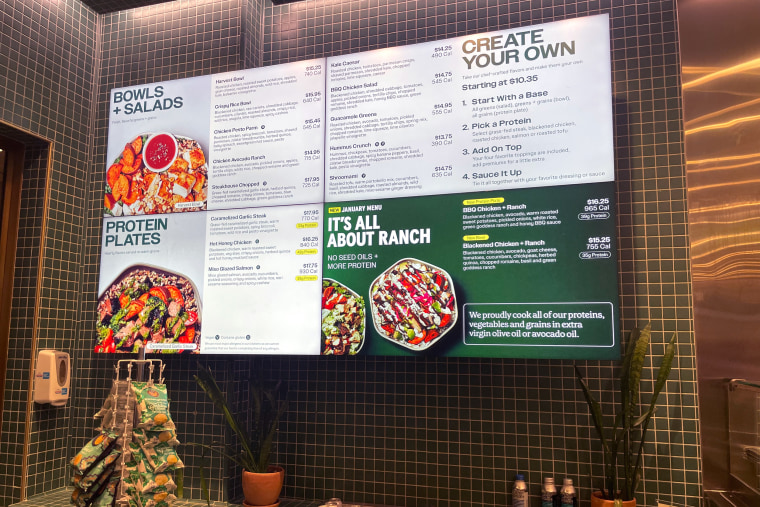Why are people avoiding seed oils? Here’s what to know
Seed Oils: The Unsettling Emergence of Debate Over Health Concerns in 2025
This year, many discussions have risen in social media platforms and podcasts over wellness in the topic concerning seed oils. There are allegations about the risk associated with taking in the “Hateful Eight” seed oils, which includes canola, corn, cottonseed, grapeseed, rice bran, safflower, soybean, and sunflower oil. These oils are common in processed foods, fast food, and home cooking. Their widespread use has raised concerns about potential long-term health effects.
The narrative against seed oils was recently reinforced by Robert F. Kennedy Jr., President-elect Donald Trump’s pick for secretary of health and human services. He posted his concerns on X, stating that Americans are being “unknowingly poisoned” by these oils, which have been linked to inflammation, heart disease, and other health issues. This warning has stirred debates among health professionals and influencers, causing more people to reconsider their dietary choices.
This growing war against seed oils has even become a parody. A popular TikTok video shows a young person comically pretending to cook with mini bottles of Fireball Cinnamon Whisky. The most important ingredient in the meal is avoiding seed oils, showing just how cultural the debate has become.
In response to the backlash that followed led the popular salad chain Sweetgreen to roll out its “first-ever seed oil-free menu.” This step is for the customers who have been demanding no seed oils, instead opting for healthier alternatives like olive oil or avocado oil. A spokesperson for Sweetgreen commented, “We’re proud to connect people to real food and offer options that align with our commitment to better health.
The seed oil debate has sparked a wider conversation about the impact of processed foods on overall health, with many experts urging people to be more mindful of the oils they consume. As public awareness grows, we can expect more food brands and restaurants to follow suit, offering healthier alternatives to meet the demand for clean, unprocessed ingredients.

A Long-standing Controversy: Omega-6 and Omega-3 Fatty Acids
Nutrition experts, however, argue that the concerns about seed oils are exaggerated and based on a somewhat outdated nutritional fad. Dr. Dariush Mozaffarian, director of the Food Is Medicine Institute at Tufts University, remarked that this debate has been around for over 20 years, and according to many, it’s simply a “reheated, repackaged wellness fad.”
The fear stems primarily from the omega-6 to omega-3 ratio found in seed oils. according to critics, this imbalance causes inflammation, leading to chronic diseases such as heart disease and diabetes.Christopher Gardner, director of nutrition studies at the Stanford Prevention Research Center, thinks that this ratio’s effect is not as harmful as the critics claim. Omega-6 fatty acids, which are present in seed oils, are not bad per se. Instead, they have been associated with improved blood cholesterol levels and insulin sensitivity.
The Nutritional Value of Omega-6s: Health Benefits or Harm?
Omega-6 fatty acids are unsaturated fats. According to studies, these may be involved in heart health via improving blood cholesterol and glucose levels.
Dr. Mozaffarian noted, “Omega-6s, in many randomized controlled trials, improve blood cholesterol, reduce LDL cholesterol, and boost glucose and insulin levels.”
By contrast, omega-3 fatty acids, also a type of unsaturated fat, tend to be viewed as more anti-inflammatory. Still, as Gardner emphasized, both omega-6 and omega-3 are essential for bodily functions.
Such narrow focus on the fatty acids overlooked the larger problem. The issue of poor health is probably in the overall diet and overconsumption of processed foods. For more information about nutrition and public health, visit MedlinePlus for resources on the impact of processed foods.
The True Culprit: Processed Foods, Not Just Seed Oils
Americans are consuming more seed oils than ever before. However, the real issue isn’t just the oils themselves, but the highly processed foods that often accompany them. Many processed foods, especially those in the middle aisles of the store, are loaded with refined sugars, excess salt, and unhealthy fats. These are the foods most often cooked with seed oils.
Lisa Young, a registered dietician and adjunct professor at NYU, points out that while processed foods contain high amounts of seed oils, they also pack sugars and empty calories. These contribute to chronic illnesses.
For a more comprehensive understanding of how processed foods affect our health, you can refer to UNC News.
Is avoiding seed oils the right answer?
Although there is no inherent danger in avoiding seed oils, it’s worth considering the potential downsides. Many people will opt to cook at home, which is healthier but takes more time and effort. Not everyone can manage this in a busy lifestyle. Furthermore, seed oils are often cheaper than alternatives like olive or avocado oil, making them a more affordable option for many.
However, in some situations, changing over to animal fats such as butter, lard, or beef tallow presents certain problems. Such fats have more saturated fats which are associated with cardiovascular diseases. According to Dr. Mozaffarian, although animal fats are healthier than processed foods, they are less healthy than seed oils.
The Better Strategy: Avoiding Seed Oils
Rather than focusing on the omega-6 and omega-3 ratio in seed oils, experts recommend looking at the bigger picture. The key is to eliminate highly processed foods and increase the consumption of fresh, whole foods. If this trend continues into healthier habits—fewer processed foods and more nutrient-dense meals—it will have a big positive impact on health.
For more details about nutrition and health, please visit our health and wellness page for the latest updates and articles.



Leave a Reply